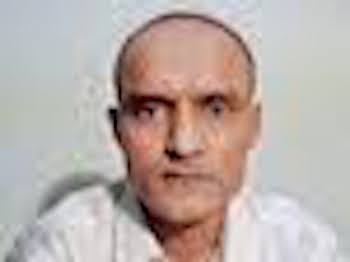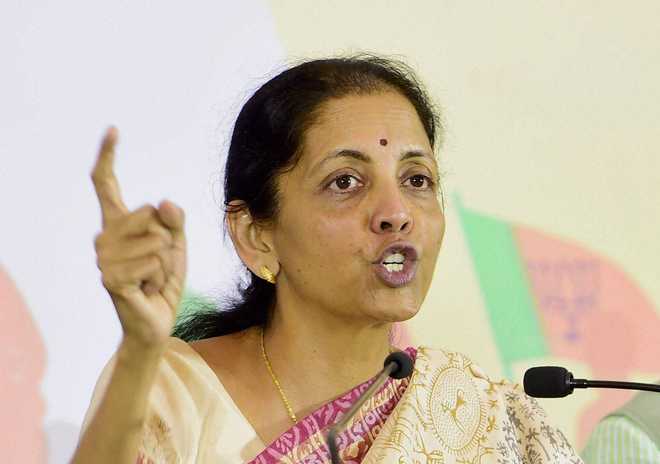

India needs to thoroughly explore Pakistan’s recent behavioral pattern against the back of its extraordinary victory in the four-decades-old Afghan civil war that is finally sailing into view — after so much of trials and tribulations, risking Pakistan’s internal stability.
Shock and awe in the world of politics work in unpredictable ways. They could have disastrous consequences or could have a salutary effect on the protagonists involved and have a chastening influence, leading to something good.
The shock and awe that the then US President George W Bush hoped to administer to Iraq by invading that country destroyed that country and led to mayhem.
In comparison, the shock and awe that the then Soviet leader Nikita Khrushchev gave to his American counterpart John Kennedy in 1962 by dispatching radars and missiles to Cuba had the desired effect. Khrushchev prevailed upon the US to remove the nuclear missiles deployed in Turkey as a reciprocal step for his willingness to not press ahead with the planned deployment of the Soviet missiles on the Caribbean island-state.
The invocation of such poignant slices of modern history helps to underscore that the shock and awe of the imminent specter of the return of the Taliban to the mainstream political life in Afghanistan — and Pakistan’s success in bringing it about — need not necessarily be taken as defeat from the Indian point of view.
Henry Ford, the great American industrialist who founded the iconic motor company, once said, “Failure is simply the opportunity to begin again, this time more intelligently.”
The clue almost always lies in humility, which keeps out hubris. There was no rationale for waging a proxy war with Pakistan on the tragic Afghan turf, since no matter how anyone tried, Pakistan wouldn’t have caved in, given the high stakes involved. If nothing else, the 2,200-kilometre long open border with Afghanistan alone could have motivated Islamabad to seek a friendly government in Kabul that is receptive to its core concerns and vital interests of national security.
A former Director General of Pakistan’s Inter-Services Intelligence (ISI) once told this writer that if an Afghan had a toothache, he got it fixed by a dentist in Peshawar.
India can and should learn to live with the emerging reality in our region — Taliban’s ascendancy to power in Kabul, Pakistan’s reasonable success in ensuring that the future power brokers on the northern side of the Durand Line are friendly and cooperative, and, third, Afghanistan’s inexorable transformation as a regional hub of China’s Belt and Road Initiative.
The time has come to address India-Pakistan tensions, which is fundamental to regional security and stability. Signs are looking good that Pakistan is in the least interested in triumphalism. Three most recent trends must be noted. One, the guns have fallen silent on the border and incidents of infiltration sharply declined. Two, Pakistan bowed to make concessions on the Kartarpur Sahib pilgrimage. And, three, Pakistan has unceremoniously reopened its airspace, bringing much relief to Indian travelers.
What lends enchantment to the view is that these nascent trends appeared as the countdown began for the verdict by the International Court of Justice (ICJ) at The Hague in the case of Kulbhushan Jadhav, who is on death row in a Pakistani jail.
A consensus ICJ ruling is usually arrived at through candid discussions, which the plaintiff and the defendant are privy to, informally. Quite obviously, such a fair denouement may provide the exit door for both Islamabad and New Delhi to move on, and it is entirely conceivable that both countries are in a chastened mood today over an a priori history that is best laid to rest.
Surely, this is where the most recent ‘goodwill gesture’ by Pakistan over the Kartarpur Sahib pilgrimage assumes particular significance. The differences between the two countries dramatically narrowed once Pakistan assured India without caveats that it will not allow pro-Khalistan activists to use the ‘Peace Corridor’ to indulge in anti-India activities. Indeed, very little time is left before the 550th birth anniversary of Guru Nanak in November.
It is often the case in life that others may open the doors, but you must enter by yourself. To be sure, India needs to thoroughly explore Pakistan’s recent behavioral pattern against the backdrop of its extraordinary victory in the four-decades-old Afghan civil war that is finally sailing into view — after so much of trials and tribulations and after committing such massive resources in men and material, risking Pakistan’s own internal stability.
The recent Pakistani stance vis-a-vis India is devoid of any traces of triumphalism. The time has come for the Indian leadership to take a big leap forward to begin a serious conversation with Pakistan. The heart of the matter is that a rare opportunity may be at hand for the two countries to discuss the rites of passage to a new era based on a moratorium on asymmetrical or proxy wars. This needs to be done at the leadership level.
An improvement in the India-Pakistan relationship will provide an open sesame to the emerging regional security scenario to turn it into an opportunity for India’s development. It will require that India jettisons its notions of the Taliban being a creature of darkness and a reset of regional policies that puts in perspective the tumultuous period that followed the Saur Revolution in 1978, which is breaking loose and drifting into history books. Importantly, the normalization of the India-Pakistan ties — and making them predictable — is the sine qua non for a steady enhancement of India’s partnership with China to make it strategic, which Prime Minister Narendra Modi has set his eyes upon as a historic legacy of his leadership.
(The author is a former ambassador)





Be the first to comment